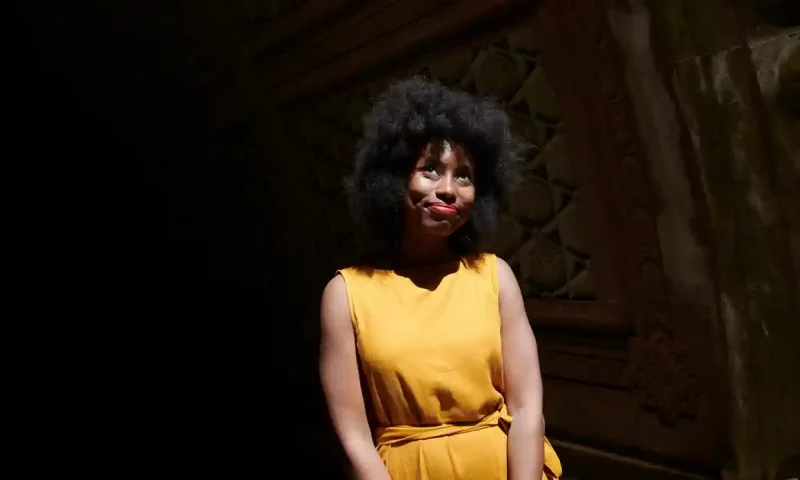After years of straightening my hair, I stopped trying to hide my Black roots
Share
Explore Our Galleries
Breaking News!
Today's news and culture by Black and other reporters in the Black and mainstream media.
Ways to Support ABHM?
By Zakiya Dalila Harris, The Guardian

[…]
As a Black kid growing up with all-white friends in a majority-white American suburb in the late 90s and early 2000s, I longed for straight hair with a burning and slightly obsessive passion. When it was “makeover time” at sleepovers, I’d sit patiently and wait for the other girls to finish doing each other’s hair so we could finally do something I could participate in. The list of people who were allowed to touch my hair was short: my mom, my grandma Kate, and my mom’s hairdresser, all Black women.
So naturally, when my mom promised me my first relaxer when I turned 10, I was elated. I counted down the days until the hairdresser put the cocktail of chemicals in my thick curls that would “relax” them, doodling pictures of my hair in various states of carefree straightness in the meantime.
At the time, I didn’t see this as trying to “fit in” with white standards of beauty, as I do now. I was just excited to finally have one more thing in common with my friends. But it wasn’t just my peers who influenced my belief that bone-straight hair equalled beauty. Both my mom and my older sister were relaxing their hair at the time, and so many Black celebrities had straight hair too. Throw in the fact that the natural hair movement hadn’t taken off the way it eventually would thanks to the internet, and there I was, floating around in a natural hair desert.
I wouldn’t think to change until more than a decade later, when I moved to Brooklyn for graduate school. Everywhere I went, it seemed, I ran into a protest or a deeply disturbing headline about another police officer who’d killed a Black person without any repercussions. The unrest in the city was palpable, and I was starting to feel it in my own bones.
It began to affect what I wrote, what I cared about. And it affected how I saw myself. My personal unrest peaked, though, when I watched the documentary The Black Panthers: Vanguard of the Revolution. While I opposed the Black Panther party’s sexist attitude towards women, I was captivated by their aesthetic. I could understand how a generation of frustrated young Black men and women would cling to the Panthers’ sharp berets, their crisp black leather jackets, their billowing afros. They fashioned an entirely new sense of themselves, and it was powerful to watch.
[…]
Follow Harris’ journey to accepting her natural hair.
For years, those with natural hair faced discrimination, which has only recently become illegal.
ABHM’s breaking news section covers Black identity topics.









Comments Are Welcome
Note: We moderate submissions in order to create a space for meaningful dialogue, a space where museum visitors – adults and youth –– can exchange informed, thoughtful, and relevant comments that add value to our exhibits.
Racial slurs, personal attacks, obscenity, profanity, and SHOUTING do not meet the above standard. Such comments are posted in the exhibit Hateful Speech. Commercial promotions, impersonations, and incoherent comments likewise fail to meet our goals, so will not be posted. Submissions longer than 120 words will be shortened.
See our full Comments Policy here.